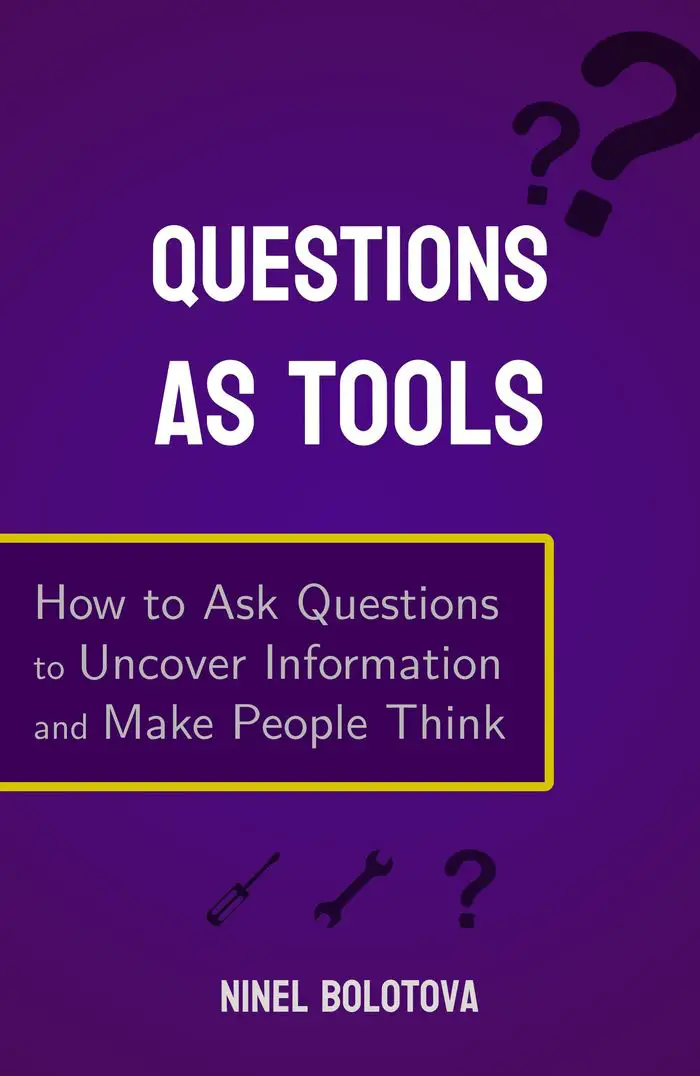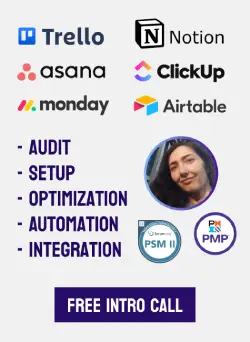Is Project Management Right for Me? 10 Questions to Consider
Project Manager is a well-paying job full of exciting challenges, but it requires certain personal skills. Give honest answers to the questions below to see if a PM role is a good fit for you.
As we talk about the traits that great project managers have, we discuss the responsibilities, struggles and delights that the role entails.
The last section tackles more questions related to the project manager job, like what the salary is, the difference between Project and Product Management, and what is required to launch your career as a project manager.

photo by @sora-shimazaki on Pexels
1. Are you a multitasker?
Multitasking is performing different activities at the same time. For example, having a conversation while cooking a meal, knitting while reading, or writing an email during a meeting.
Splitting attention between different tasks at once actually reduces efficiency and is dangerous when the activities require precision or quick reaction, like driving.
However, when people say “multitasking”, they often mean “quickly switching between tasks while doing them all efficiently”. Being a grandmaster who can play chess with multiple opponents, moving from one board to the next.
To be clear: any kind of context switching is detrimental to productivity. You should try reducing it by grouping tasks, delegating, and prioritizing. But you’ll still have many things to process and keep in mind at once.
So, a more accurate version of the question is:
Are you efficient with time management and prioritization?
As a project manager, you’ll need to perform various balancing acts with scope, budget, schedule, stakeholder interests, resource availability, and other elements.
To do it well, you need a solid grip on managing your own time and priorities.

photo by @tima-miroshnichenko on Pexels
2. What are your communication skills?
Project management is largely about communication, so having good skills in this area is critical. They include:
- Active listening
- Picking non-verbal cues
- Giving updates and feedback
- Respectful and non-judgmental communication
Do you consider yourself a good negotiator?
When there are conflicting interests, do you usually come to an understanding and agreement? See the skills of a good negotiator.
Do you like talking to people a lot?
Some people get burned out if they spend most of their day on multiple communication channels. Do you enjoy actively engaging with other people? Are you at ease talking to complete strangers?
How well do you notice and tackle miscommunication?
At which point do you understand that the other person doesn’t get something or doesn’t agree? Is it easy for you to explain and clear the situation?

3. Are you a proactive, autonomous person?
Proactivity and autonomy usually go together.
Proactivity means:
- Creating a situation rather than responding (reactivity)
- Taking control of the situation early on and steering it, instead of adjusting to what life throws your way and waiting for things to happen.
- Acting without waiting for an order or approval, even at the risk of making a wrong move and facing repercussions.
Autonomy is having independence and a sense of agency. An autonomous person acts on their own judgment, not under the influence of manipulative or external forces.
“No good deed goes unpunished” is a sarcastic proverb that could be interpreted for the initiative as well.
“No initiative goes unpunished”. This means: if you’re the one coming up with the idea, you’re responsible for its implementation – and its consequences.
As a project manager, you’ll be constantly assessing the situation to make decisions that affect the success of the project and potentially impact the lives of team members, customers, investors, and other stakeholders.
Responsibility is a heavy burden to some. You should be able to bear its weight.
Granted, in some organizations, there might be too much inertia and rigid hierarchy to allow for proactivity or autonomy on the part of a new project manager.
But if you have those qualities, it’ll be up to you to decide where you want to work – and perhaps you could bring some organizational change as well.
4. Do you like thinking a few steps ahead?
Do the following come naturally to you?
- Thinking of worst-case scenarios and coming up with strategies to avoid them
- Creating fallback plans
- Sacrificing a short-term gain for the long-term benefit
As a project manager, you’ll need to calculate risks. Even if there’s no formal Risk Management plan, you’ll have to think it through and keep reassessing risks throughout the project.
Related: Cynefin framework for decision-making describes the situations of various degrees of uncertainty and gives advice on the course of action in each domain.

photo by @ds-stories on Pexels
5. Are you good with setting and maintaining boundaries?
Is it easy for you to say “no”?
Even to someone you like? To your superior? To someone who pays you? Who could fire you?
Would you still look them in the eye and calmly say “no”?
It will be your responsibility as a project manager to manage stakeholder expectations and prevent scope creep.
Firm boundaries are based on open, respectful communication and on being consistent.
Related: How to maintain healthy boundaries.
6. How do you feel about documenting things?
With or without a formal project management plan, documentation is important. Keeping track of the things that were done, are being done, or planned, and who is responsible for what, among other things.
Project management software helps with day-to-day management a lot, but you still need to organize and maintain records.
Is it your natural inclination to keep things documented?
7. Are you a “cat herder”?
“Herding cats” is the term that used to be applied in the context of managing the project team. This attitude goes away as the Agile mentality spreads and the focus shifts towards self-managing teams.
However, the term stroke a chord with me. In any case, you’ll be dealing with people facing different directions: different characters, agendas, and expectations. Not everyone will be eager to cooperate.
As a project manager, you’re responsible for creating cohesion.
So, looking at the image “herding cats” brings to mind: is it something you feel like doing?
8. Can you keep your cool under stress?
As you might imagine, with all the responsibility, keeping plates in the air, and the constant need to communicate, project management isn’t the most relaxing job.
And that’s even before things start going askew. If – or, rather, when – they do, as things can’t go smoothly all the time, and you’ll be the one held accountable.
This doesn’t mean that a PM should be under constant stress. Keeping stress levels down has a lot to do with prioritizing, maintaining boundaries, and a healthy work-life balance.
But if you’re prone to anxiety, weigh your choices carefully.

photo by @thatguycraig000 on Pexels
9. Do you prefer to control or empower?
Traditional, autocratic management is similar to the military system – highly hierarchical and disciplined. The power flows strictly downward. There might be a good deal of micromanagement – closely observing and reminding of the work to the employees.
The world moves away from that at a high pace. Industry leadership is impossible without innovation, and innovation is impossible without freedom.
The question in the title was a trick: in the modern world, every project manager and leader should empower their team and their subordinates.
Feeling in control in regard to your own life is important, but if you want to exercise tangible control over other living beings, there aren’t that many options. Besides military officer, some occupational suggestions I found are “professional coach”, “event organizer”, and “dog trainer”.
However, the PM has a say in what tasks are prioritized, how the processes are organized, and other structural aspects of work.
If you strongly lean towards the coaching style and leading without authority, consider the Scrum Master role.
Related: Is being a Scrum Master right for me?
10. Do you have an Agile mindset?
Even if your organization doesn’t employ the Agile methodology, having the mindset is important to succeed as a professional.
Key features of the Agile mindset:
- Embracing the feedback, positive or negative
- Ready to deal with challenges and uncertainty
- Failure is a growth opportunity
- Active learning
- Being respectful toward subordinates and opponents
Related: Advice on how to develop an Agile mindset.
More questions related to the Project Manager role
What does a project manager do?
What do PMs do as a part of their daily routine? The job portal Indeed.com compiled a list of duties and responsibilities of a project manager, along with some job description examples.
What’s the project manager salary?
According to Glassdoor, the medium salary of a project manager in the US is around $80k a year. But the total range is from $53K to $137K. It varies greatly depending on the industry and the experience.
The Project Manager salary is reasonably high, but your main motivation is the monetary gain, I could say that, on average, developers earn more than PMs. The technical aspect scares some people off, but becoming a developer is quite achievable if you’re determined and ready to do some active learning.
You should pursue a project management career if it’s a good match for your personality and aspirations.
Do I need education or experience to become a project manager?
Employers usually look for people with professional experience in project management.
What could improve your chances if you’re new to the profession:
- de-facto managing people at your job
- applying for an entry-level role
- getting a certification
- understanding the business landscape in your field
There are PM certifications that don’t require work experience. Obtaining them shows your understanding of project management principles and your commitment to the profession.
Certifications help you become more competitive.
CAPM (Certified Associate in Project Management) by PMI is a good choice – it’s issued by the same institute that issues PMP, the golden standard of a project management certification today.
CAPM could also substitute certain prerequisites for other certifications – for example, you could use CAPM instead of PRINCE2 Foundation to obtain the PRINCE2 Professional certification.
Either way, you need to have a solid understanding of the process of both Waterfall and Agile project management. Getting ready for a certification exam helps with that a lot.
Field practices vary, but the exams are very specific about the practices they’re testing, so even professionals with years of experience have to do a fair share of preparation to get ready for certification tests like PMP.
Project vs. Product Manager: what’s the difference?
Project is a temporary endeavor that has a defined beginning, end, scope, and resources. A project is considered successful if its scope is completed on time and within budget.
Product is a good, application, system, or service that is created to satisfy customer needs and constantly evolves to match the needs. A product is considered successful if it meets the needs and turns in profit.
Project and Product Managers are responsible for running and maintaining projects and products, respectively.
Related: Top 10 Product Management books.
What’s the difference between a Project Manager and a Scrum Master?
A project manager is responsible for maintaining the entire project, including the budget, the schedule, and various other elements.
Scrum master is a role in the Scrum Framework. They ensure that the Scrum principles are implemented, remove the impediments the team is facing, and coach the members.
Related: What the Scrum Master role entails.
What are the project manager career opportunities?
Project management could be a stable career, especially in larger organizations. In this case, the steps are: project coordinator, project manager, program manager.
An experienced project manager could also:
- Move to an executive-level role
- Start their own business
- Become a coach
Conclusion
Those questions will give you an idea of whether being a PM is a good fit for you, but there are many more things to learn.
And even once you’re experienced, it’s important to keep growing as a person and a professional.
Whichever road you take, I wish you to stay curious and resilient on your journey.
Articles you might be interested in:

 Ninel Bolotova, PMP, is a workflow expert setting up and automating processes in ClickUp, Trello, Notion, Monday and other PM tools. She enjoys challenges related to process setup, automation and optimization.
Ninel Bolotova, PMP, is a workflow expert setting up and automating processes in ClickUp, Trello, Notion, Monday and other PM tools. She enjoys challenges related to process setup, automation and optimization.